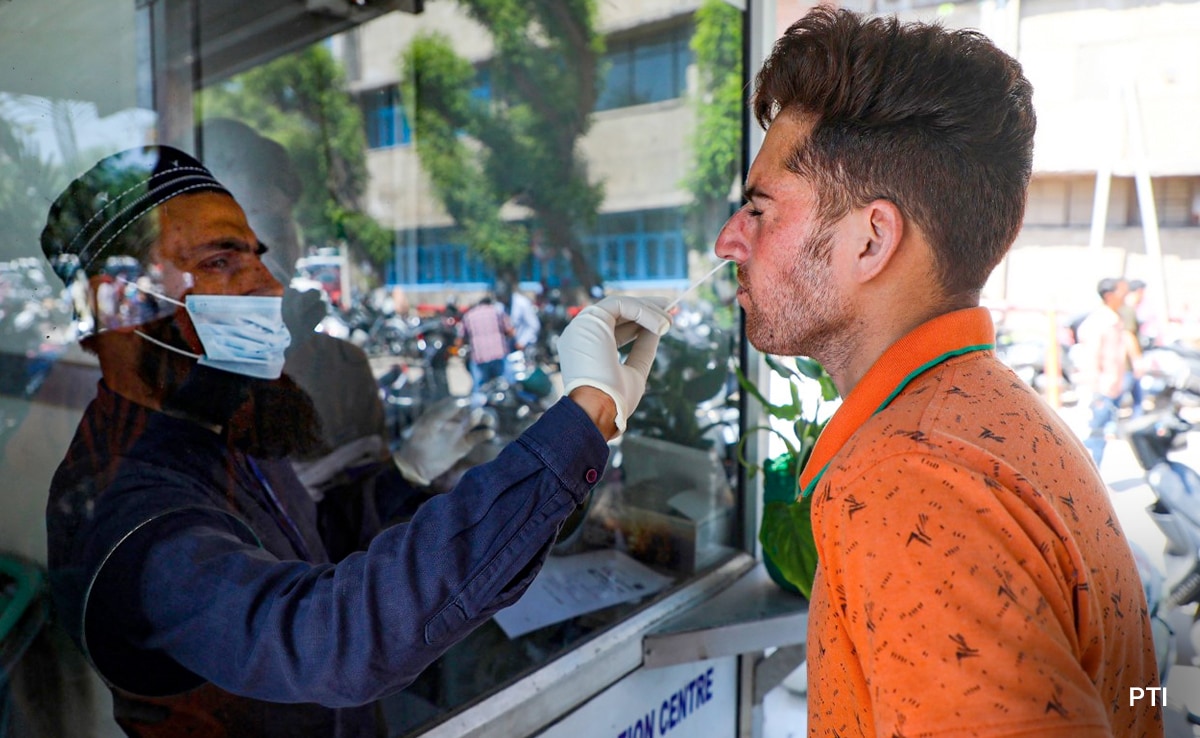New Covid-19 Spike in Asia Sparks Global Health Concerns
A significant resurgence of Covid-19 is currently unfolding across Asia, primarily affecting densely populated regions such as Hong Kong, Singapore, Thailand, and parts of China. Health officials in these countries are on high alert as cases continue to soar, raising concerns about public health safety. Recent reports indicate an alarming increase in both infections and hospitalizations, prompting authorities to encourage booster vaccinations amidst this newly emerged threat.
According to health data, the ongoing rise in cases can be attributed to the JN.1 variant, a subvariant of Omicron that has garnered the attention of the World Health Organization (WHO), which has labeled it a “variant of interest.” As of now, the severity of illness associated with this variant remains unestablished, making it imperative for health agencies to monitor its spread closely.
The surge in Covid-19 cases has been particularly notable in Hong Kong, where the city has reported its highest positivity rates in a year. As per the report by Bloomberg, the spike in severe cases culminated during the week ending May 3, with health officials noting a concerning increase in respiratory samples indicating Covid-19 infection. In Singapore, health authorities revealed a startling 28% increase in cases during the same week, bringing the total to over 14,000. Additionally, Thailand reported a dramatic spike, with weekly cases doubling to over 33,000, predominantly affecting young adults.
The Impact of the JN.1 Variant on Southeast Asia
The JN.1 variant is pivotal in understanding the recent Covid-19 surge, as it has been identified as the primary driver behind the current wave of infections. As per the WHO, JN.1 has not been classified as a “variant of concern,” indicating that while it demands vigilance, there is currently no evidence it leads to increased severity of illness compared to previous variants. Despite this, local health authorities are urging residents to stay vigilant and adhere to vaccination schedules.
The implications of this variant extend beyond individual health concerns, impacting broader public health strategies. Countries such as Hong Kong, Singapore, and Thailand are experiencing heightened pressure on their healthcare systems, prompting them to activate booster vaccination campaigns. With variants continuously evolving, public health experts emphasize the importance of vaccination to bolster community immunity levels and reduce transmission rates.
In Hong Kong, the Center for Health Protection’s latest data reveal that the positivity rate for Covid-19 among respiratory samples has reached unprecedented levels, with severe cases nearly doubling over the past month. The city, famous for its densely populated urban center, is facing mounting pressure to manage the healthcare response effectively. The public’s compliance with vaccination initiatives serves as a critical tool in mitigating the surge.
Detailed Analysis of Affected Regions
The rise of Covid-19 cases in Asia is manifesting in various ways across several nations. In Hong Kong, authorities highlighted that the recent spike in severe cases—31 reported in just one week—reflects a growing concern. Additionally, the city’s population is reminded of the importance of booster shots, especially as hospitals begin to see an uptick in admissions due to Covid-19 complications. Amidst these developments, the health department continues to remind citizens of the need for preventive measures like wearing masks in crowded places.
Singapore, known for its stringent health policies, has also witnessed sharp increases in Covid-19 cases, with health officials reporting that daily hospitalizations rose by an alarming 30%. This signals a potential shift in the public health landscape, as the government had previously adopted a strategy of minimizing case reporting unless significant increases were noted. The recent decision to unveil these statistics demonstrates the seriousness of the situation, emphasizing the importance of transparency in public health communications.
Meanwhile, Thailand is grappling with a severe outbreak, particularly post-Songkran festival, a time known for large celebrations and gatherings. The Department of Disease Control indicated that the majority of cases are among individuals aged 30-39, prompting urgent calls for vaccinations, especially among high-risk groups. Given the correlation between the festive period and the subsequent case increase, health officials are working diligently to ensure that appropriate measures are in place to curb further spread.
In China, a similar trend is developing, with the nation’s Center for Disease Control reporting a rise in Covid-19 positivity rates. The increase from 7.5% to 16.2% in outpatient cases between late March and early May highlights a rising trend that could mirror previous waves of infection. The authorities are taking proactive steps to mitigate the risk of overwhelming their healthcare system, which has been a concern in past outbreaks.
Staying Informed: Expert Insights and Recommendations
As the Covid-19 situation evolves, experts stress the importance of staying informed. Regular updates and reliable information from credible sources can help citizens make informed decisions. Public health authorities in Asia have urged individuals to remain vigilant, practice safety measures, and get vaccinated—especially with regard to the new JN.1 variant.
The consistent rise in Covid-19 cases serves as a reminder that the pandemic is still a global challenge. Vaccination remains a key strategy in combatting the virus and preventing severe outcomes associated with infection. Public health campaigns across the affected countries are intensifying, focusing on outreach to encourage booster vaccinations among the population.
In this context, the collaboration between governments, healthcare institutions, and communities is imperative. Each party has a role to play in managing public health responses, sharing accurate information, and supporting vaccination drives.
For a deeper understanding of the Covid-19 pandemic and its evolving variants, you can explore related articles on the impact of vaccination efforts[here](https://www.cdc.gov/coronavirus/2019-ncov/vaccines/index.html) and the latest updates from the World Health Organization[here](https://www.who.int/news-room/situation-reports).
As we navigate through this challenging phase of the pandemic, collective action and community cooperation will remain crucial in sustaining public health and safety across Asia and beyond.
DISCLAIMER
We have taken every measure to ensure that the information in this article and on our social media platforms is accurate, verified, and obtained from reliable sources. For feedback or complaints, please contact us at info@hamslive.com.


